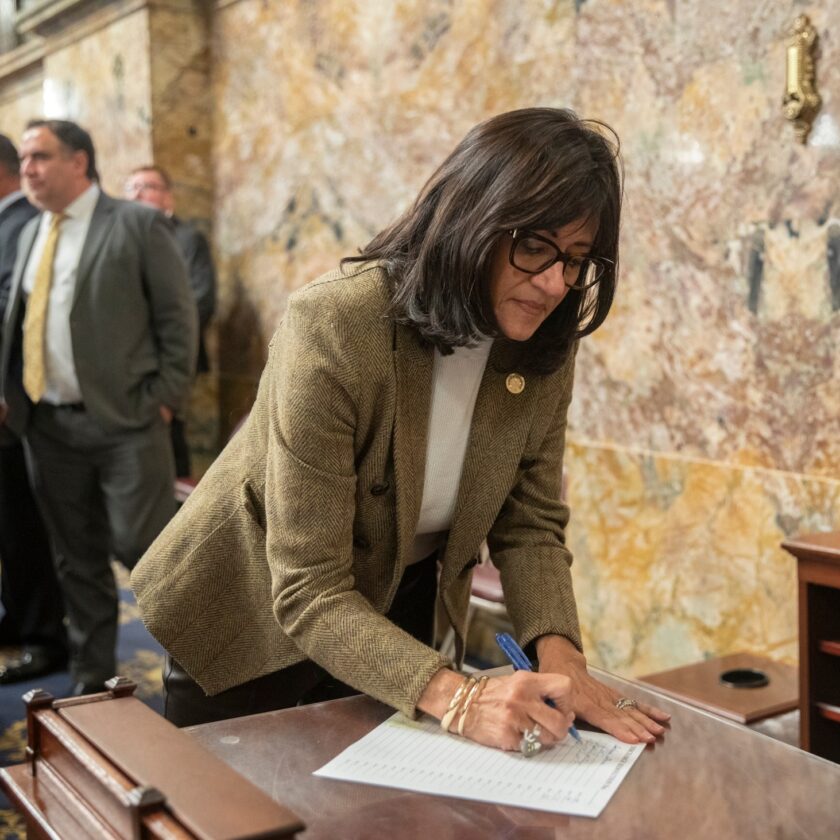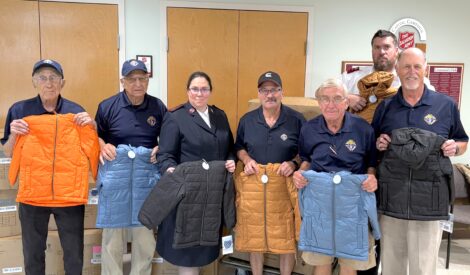Child seat belt use could be admissible in court

Rep. Jill Cooper, R-Export, signs a discharge resolution for Senate Bill 9 on the House floor last week.
Legislation is being drafted that could allow child seatbelt violations to be used as evidence in court proceedings in limited cases.
Rep. Jill Cooper, R-Export, is drafting the Child Passenger Safety Evidence Act, which will create a narrow, limited exception to Pennsylvania’s current law prohibiting child passenger restraint system violations from being admissible as evidence in criminal proceedings.
Seat belt use is a secondary offense for adults in Pennsylvania. While use of child passenger restraint systems is generally required for children under eight years of age, current law also prohibits both seat belt violations and child passenger restraint system violations from being used as evidence in criminal and civil proceedings.
“While this blanket prohibition can be argued to have both pros and cons, applying this prohibition uniformly to all forms of required passenger restraints, including child and infant seat use, jeopardizes the safety of young children and limits the ability of motorists to legally defend themselves,” Cooper wrote in her co-sponsorship memorandum.
Cooper said the law, as written, at times makes it difficult to properly charge adults who don’t make sure their children are properly using seat belts in cases that lead to injury or death of a child. Cooper’s bill will allow child passenger restraint system violations to be used as evidence in criminal proceedings if the driver of the vehicle transporting the child was 18 or older, the child was required to be in a child passenger restraint system (booster or baby/infant seat) and if the child was injured or killed.
“Additionally, this legislation is meant to target the worst child seat violations, which is why my legislation also includes protections for parents who may not perfectly comply with child passenger restraint requirements,” Cooper wrote. “Situations where a parent uses the wrong type of seat for the age and size of the child would not be admissible in criminal proceedings under the bill. For example, a parent who may not switch an infant from a rear to a front-facing child seat because the infant exceeds the maximum weight.”
Cooper’s bill isn’t the only recent state effort over the past couple of years to allow courts to hear evidence of seat belt use when deciding court cases involving traffic accidents – though past efforts haven’t been focused on children. In March 2024, Indiana Gov. Eric Holcomb signed into law a bill that lets juries hear evidence of a plaintiff’s failure to use a seat belt and reduce damage awards on that basis. Another bill passed the Georgia State Senate earlier this year that would allow jurors to be told if a plaintiff in a court case was wearing a seat belt.




